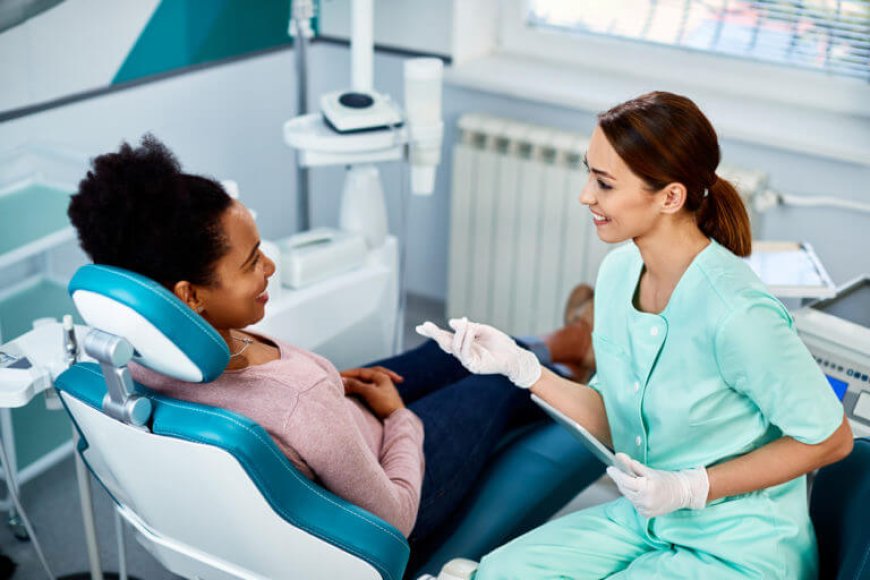Where to find emergency dental care near me?
Looking for emergency dental care? This guide helps you find urgent dental services nearby quickly and efficiently. Get the help you need now.

Finding emergency dental care can be crucial when sudden dental issues arise. Whether it's a severe toothache, a broken tooth, or any other urgent dental problem, knowing where to turn for help is essential. This guide will walk you through the steps to locate emergency dental care near you efficiently and effectively.
Understanding Emergency Dental Care
Emergency dental care refers to services that address urgent dental issues requiring immediate attention. These can include:
- Severe tooth pain
- Broken or chipped teeth
- Knocked-out teeth
- Dental abscesses
- Lost fillings or crowns
- Soft tissue injuries in the mouth
Why You Might Need Emergency Dental Care
There are several reasons why someone might need emergency dental care. Here are a few common scenarios:
- Toothache: Severe, persistent tooth pain can be a sign of infection or other serious dental issues.
- Trauma: Accidents resulting in broken, chipped, or knocked-out teeth need prompt treatment.
- Infections: Dental abscesses or infections can cause significant pain and swelling, requiring immediate care.
- Lost Restorations: Lost fillings or crowns can expose sensitive areas of your teeth, leading to pain and discomfort.
- Soft Tissue Injuries: Injuries to your gums, cheeks, or tongue may need professional care to prevent infection and promote healing.
Steps to Find Emergency Dental Care Near You
1. Use Online Resources
One of the quickest ways to find emergency dental care near you is to use online search engines and directories. Simply type "Emergency Dental Care Near Me" into your preferred search engine, and you'll find a list of nearby dental clinics that offer emergency services. Websites like Google Maps can provide detailed information about the clinic's location, hours of operation, and reviews from other patients.
2. Check Local Listings
Local business directories, such as Yelp or Yellow Pages, can also be useful resources for finding emergency dental care. These platforms often include reviews and ratings, helping you make an informed decision about where to go for urgent dental care.
3. Ask for Recommendations
Word of mouth can be a powerful tool when searching for emergency dental care. Ask friends, family members, or coworkers if they know of any reliable emergency dentists in your area. Personal recommendations can provide valuable insights into the quality of care you can expect.
4. Contact Your Regular Dentist
If you have a regular dentist, reach out to them first. Even if their office is closed, they may have an emergency contact number or an after-hours service. Your regular dentist might also be able to refer you to a trusted emergency dental clinic.
5. Visit an Urgent Care Center
In some cases, urgent care centers can provide emergency dental care or refer you to a nearby dental specialist. While not all urgent care centers have dental services, it's worth checking if you need immediate attention and cannot find an available dentist.
6. Dental Schools
Dental schools often have clinics where dental students, supervised by experienced dentists, provide care at a lower cost. These clinics may offer emergency services, and they can be a good option if you're looking for affordable emergency dental care.
What to Expect During an Emergency Dental Visit
When you visit an emergency dental clinic, the dentist will first assess your condition to determine the best course of action. Here’s what you can typically expect:
- Assessment: The dentist will examine your mouth and may take X-rays to understand the extent of the issue.
- Treatment: Based on the assessment, the dentist will provide the necessary treatment, which could include pain relief, temporary restorations, or immediate procedures to address the problem.
- Follow-Up Care: The dentist will give you instructions for follow-up care and schedule any necessary future appointments.
Tips for Managing Dental Emergencies at Home
While it’s essential to seek professional care as soon as possible, there are steps you can take to manage your condition until you can see a dentist:
- Toothache: Rinse your mouth with warm water, use dental floss to remove any food debris, and apply a cold compress to the outside of your cheek to reduce swelling.
- Broken Tooth: Rinse your mouth with warm water, save any broken pieces, and apply gauze to any bleeding areas.
- Knocked-Out Tooth: Handle the tooth by the crown (not the root), rinse it gently, and try to reinsert it into the socket. If that’s not possible, place the tooth in milk or a saline solution and seek dental care immediately.
- Lost Filling or Crown: Use dental cement or temporary filling material to cover the affected area and prevent further damage until you can see a dentist.
Preventing Dental Emergencies
While not all dental emergencies can be prevented, there are steps you can take to reduce your risk:
- Maintain good oral hygiene by brushing and flossing regularly.
- Visit your dentist for routine check-ups and cleanings.
- Avoid chewing hard foods or ice that could crack your teeth.
- Wear a mouthguard during sports or other activities that could result in dental injuries.
Conclusion
Knowing where to find emergency dental care near you can make a significant difference in managing dental emergencies effectively. By using online resources, local listings, and personal recommendations, you can quickly locate a reliable emergency dentist. Remember to contact your regular dentist first, and consider urgent care centers or dental schools as alternative options. Taking immediate steps to manage dental emergencies at home and maintaining good oral hygiene can help prevent many urgent dental issues. Don’t wait until an emergency strikes—be prepared and informed about where to seek help when you need it most.

 smitjohn9870
smitjohn9870 










